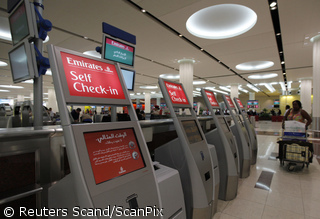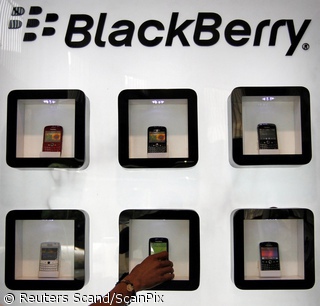"A Flaw Worse Than Melissa".
Published:
2 September 1999 y., Thursday
A team of computer scientists has discovered a bug in tens of millions of Microsoft Windows computers that lets an attacker take control of a PC by sending an email message. The security hole, present in most copies of Windows 95 and all versions of Windows 98, would allow a malcontent to conceal malicious computer code in an email message or Web page that can surreptitiously modify files, reformat a hard drive, or execute any DOS command. "It_s the Melissa virus, but even worse," says Dan Wallach, an assistant professor of computer science at Rice University who is one of the team members. "The Melissa virus required someone to click OK. This doesn_t." Microsoft has acknowledged the backdoor. This week, after the researchers contacted the company, it released an upgraded version of its Java virtual machine that fixes the problem. But the tens of millions of Windows users who have not downloaded the patch and have not disabled Java remain vulnerable to anyone who knows the technical details of the bug. At risk are Windows users who read email using programs like Outlook, Outlook Express, and Qualcomm_s Eudora that use Microsoft_s viewing software and have fairly recent versions of its Java virtual machine. A Trojan Horse sent via email will be executed as soon as the message is viewed -- without any prompting. Web browsing with Internet Explorer 4.0 and 5.0 can be dangerous if users click on a Web site with malicious Java -- but Netscape_s browsers are immune. Other members of the team include Drew Dean and Dirk Balfanz of Xerox PARC, and Princeton computer science professor Ed Felten, best known for his testimony as the government_s technical expert in the Microsoft antitrust case. All are current or former members of Princeton_s Secure Internet Programming group, which has revealed many security vulnerabilities in Java implementations over the last four years. This attack works by repeatedly sending a specific message to a Java thread, exploiting what computer scientists call a race condition. Usually, Microsoft_s Java virtual machine does the right thing by barring a program from executing dangerous functions. But the attacking program the researchers showed to Wired News doesn_t give up.
Šaltinis:
Wired News
Copying, publishing, announcing any information from the News.lt portal without written permission of News.lt editorial office is prohibited.
The most popular articles
Software company announced new structure_ of it_s business.
more »
 Unisys Corporation (NYSE: UIS) announced enhancements to its Baggage Reconciliation System (BRS) featuring more detailed information about baggage handling requirements for incoming flights, real-time monitoring and alerts of service level agreements (SLAs), and a mobile app to provide passengers with live updates on when and where to collect their bags.
more »
Unisys Corporation (NYSE: UIS) announced enhancements to its Baggage Reconciliation System (BRS) featuring more detailed information about baggage handling requirements for incoming flights, real-time monitoring and alerts of service level agreements (SLAs), and a mobile app to provide passengers with live updates on when and where to collect their bags.
more »
 Samsung doubled its share of the tablet PC market in the last three months of 2012, research firm IDC has said.
more »
Samsung doubled its share of the tablet PC market in the last three months of 2012, research firm IDC has said.
more »
 Facebook boss Mark Zuckerberg has strongly denied the social network is planning to release its own phone.
more »
Facebook boss Mark Zuckerberg has strongly denied the social network is planning to release its own phone.
more »
 The OnLive gaming service is to be made available to Google TV users, following a deal with electronics firm LG. One of a handful of firms making hardware for Google TV. LG's G2 series sets have Google's TV service built in.
more »
The OnLive gaming service is to be made available to Google TV users, following a deal with electronics firm LG. One of a handful of firms making hardware for Google TV. LG's G2 series sets have Google's TV service built in.
more »
 Blackberry has become the latest smartphone to offer free wi-fi calls to users via its own software. Research In Motion (RIM) has added the facility to its Blackberry Messenger (BBM) app, which already offered an alternative to text messages.
more »
Blackberry has become the latest smartphone to offer free wi-fi calls to users via its own software. Research In Motion (RIM) has added the facility to its Blackberry Messenger (BBM) app, which already offered an alternative to text messages.
more »
 We are delighted to announce that on 26th of January SafeNet Sentinel Cloud was awarded the SiiA 2012 Best Digital Rights Management Solution!
more »
We are delighted to announce that on 26th of January SafeNet Sentinel Cloud was awarded the SiiA 2012 Best Digital Rights Management Solution!
more »
 The Spanish government has approved tough new legislation which could see websites deemed to be trading in pirated material blocked within ten days.
more »
The Spanish government has approved tough new legislation which could see websites deemed to be trading in pirated material blocked within ten days.
more »
 The Los Angeles World Airports (LAWA), which oversees airport operations for the city of Los Angeles, has awarded a contract modification to Unisys (NYSE: UIS) to upgrade its access control and alarm monitoring system, used to identify the 45,000 airport employees, contractors, police and others who work at the organization’s three airports.
more »
The Los Angeles World Airports (LAWA), which oversees airport operations for the city of Los Angeles, has awarded a contract modification to Unisys (NYSE: UIS) to upgrade its access control and alarm monitoring system, used to identify the 45,000 airport employees, contractors, police and others who work at the organization’s three airports.
more »
 Unisys Corporation (NYSE: UIS) today announced Version 2 of its Unisys Secure Private Cloud Solution, the company’s flagship cloud solution for clients’ and cloud service providers’ data centers.
more »
Unisys Corporation (NYSE: UIS) today announced Version 2 of its Unisys Secure Private Cloud Solution, the company’s flagship cloud solution for clients’ and cloud service providers’ data centers.
more »
 An American blogger has discovered three fake Apple stores operating in Kunming city, China.
more »
An American blogger has discovered three fake Apple stores operating in Kunming city, China.
more »